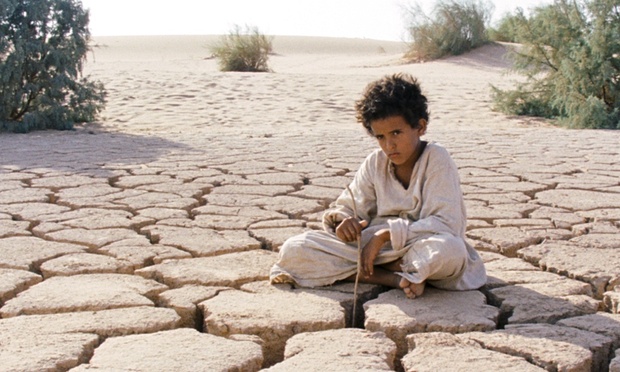Available on DVD and Blu-ray from Mon 26 Oct 2015
Naji Abu Nowar / Jordan, United Arab Emirates, Qatar, United Kingdom / 2014 / 100 minutes
Theeb (Wolf), recently short listed for a Best Foreign Language Oscar and BAFTA, is a confident and complete debut feature from British-born Jordanian Naji Abu Nowar regarding the coming of age of the eponymous young lead. It bends genre, cultures and frontiers into a Kurosawa and Leone like hybrid western drama which eschews all comparisons to David Lean, T. E. Lawrence and recognisable Arabist cinematic signifiers.
Set in Hejaz 1916 it tells the story of a young Howeitat Bedouin, who surreptitiously joins his elder brother on an expedition to lead a British soldier across a desert and his personal efforts to solve the riddle of “what’s in the box?” Surrounding the characters is a world changing fast with colonial upheaval, industrial expansion and the First World War. As these pressures impact on Theeb, he will be driven by the weight of history to participate in actions which will have profound transformative affects both personally and politically.
Like the hearths in the film, where people gather to talk, trade and plot, it looks to the past for inspiration, drawing upon oral traditions of culture and history passed through the ages. But, once situated, it projects to the future by measuring the impact of constructing the Hejaz railway (the “iron donkey trail”) on nomadic cultures, social structures and even traditional modes of transport – foot and camel.
The film has what can most precisely be described as an epic calmness to its sublime photography, courtesy of Wolfgang Thaler. The beguiling simplicity of its compositions, drama and meandering pace hides a real depth of emotion, awareness of history and cinema which is slowly and expertly revealed. The trajectory of its plot remains true and is resolved correctly, with no implausible and unsatisfying acquiescence to simplistic denouements. By the journey’s conclusion there is a genuine sense of transformation, if perhaps tragic, in the central character, which is often lacking in similar films.
Rupert Lloyd‘s editing is also of particular merit as it transcends simplistic narrative conventions of assembling footage according to the needs of the script. When the film cuts from camel feet trekking across sand to the steady flow of railway sleepers held hostage by steel tracks, the film speaks of more than narrative, temporal or material progress. It recognises the transition from a nomadic, decentralised way of life to the hyper organised and anxiety inducing import of modernity.
